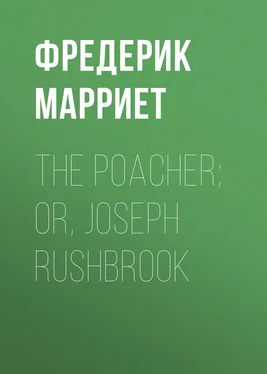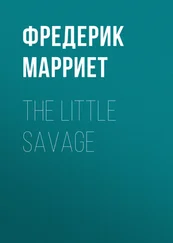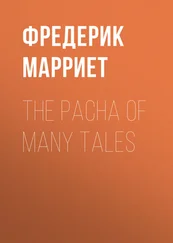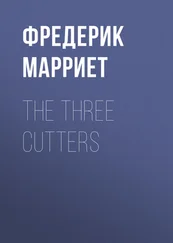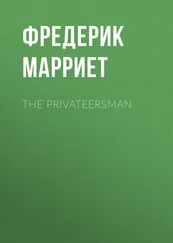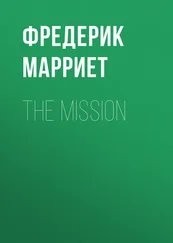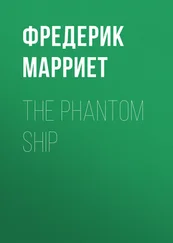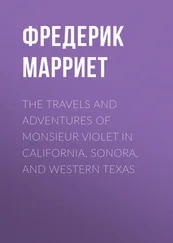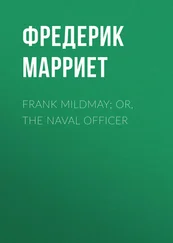Фредерик Марриет - The Poacher; Or, Joseph Rushbrook
Здесь есть возможность читать онлайн «Фредерик Марриет - The Poacher; Or, Joseph Rushbrook» — ознакомительный отрывок электронной книги совершенно бесплатно, а после прочтения отрывка купить полную версию. В некоторых случаях можно слушать аудио, скачать через торрент в формате fb2 и присутствует краткое содержание. Жанр: foreign_prose, literature_19, foreign_antique, на английском языке. Описание произведения, (предисловие) а так же отзывы посетителей доступны на портале библиотеки ЛибКат.
- Название:The Poacher; Or, Joseph Rushbrook
- Автор:
- Жанр:
- Год:неизвестен
- ISBN:нет данных
- Рейтинг книги:4 / 5. Голосов: 1
-
Избранное:Добавить в избранное
- Отзывы:
-
Ваша оценка:
- 80
- 1
- 2
- 3
- 4
- 5
The Poacher; Or, Joseph Rushbrook: краткое содержание, описание и аннотация
Предлагаем к чтению аннотацию, описание, краткое содержание или предисловие (зависит от того, что написал сам автор книги «The Poacher; Or, Joseph Rushbrook»). Если вы не нашли необходимую информацию о книге — напишите в комментариях, мы постараемся отыскать её.
The Poacher; Or, Joseph Rushbrook — читать онлайн ознакомительный отрывок
Ниже представлен текст книги, разбитый по страницам. Система сохранения места последней прочитанной страницы, позволяет с удобством читать онлайн бесплатно книгу «The Poacher; Or, Joseph Rushbrook», без необходимости каждый раз заново искать на чём Вы остановились. Поставьте закладку, и сможете в любой момент перейти на страницу, на которой закончили чтение.
Интервал:
Закладка:
“I trust that I have your Majesty’s permission so to do,” replied O’Donahue, bowing low.
“Oh, certainly you have; and, moreover, our best wishes for your happiness.”
“I humbly thank your Majesty,” replied O’Donahue; “still I trust your Majesty does not think that I wish to transplant her to my own country altogether, and that I shall be permitted to reside, for the major part of the year, in your Majesty’s dominions.”
“Nothing will give me greater pleasure; and it will be a satisfaction to feel that I shall gain instead of losing by the intended marriage.”
“By the powers! but I will remind him of this, some day or another,” thought O’Donahue. “Haven’t I his permission to the marriage, and to remain in the country?”
Everything was now ripe for the execution of the plot. The countess gave out that she was going to her country-seat, about ten miles from Saint Petersburg; and it was naturally supposed that she was desirous that the marriage should be private, and that she intended to retire there to have the ceremony performed; and O’Donahue advertised his departure in the Gazette .
The Princess Czartorinski produced a letter from the countess, requesting her, as a favour, to obtain leave from the empress to pass two or three days with her in the country; and the empress, as the countess was first-cousin to the princess, did not withhold her consent; on the contrary, when the princess left the palace, she put a case of jewels in her hand, saying, “These are for the bride, with the good wishes and protection of the empress, as long as she remains in this country.” One hour afterwards O’Donahue was rewarded for all his long forbearance by clasping his fair one in his arms. A priest had been provided, and was sent forward to the country château, and at ten in the morning all the parties were ready. The princess and her cousin set off in the carriage, followed by O’Donahue, with McShane and his suite. Everything was en règle . The passports had been made out for Germany, to which country it was reported the countess would proceed a few days after the marriage, and the princess was to return to the palace. As soon as they arrived at the château the ceremony was performed, and O’Donahue obtained his prize; and to guard against any mishap, it was decided that they should leave the next morning, on their way to the frontier. Dimitri had been of the greatest use, had prepared against every difficulty, and had fully proved his fidelity. The parting between the countess and her cousin was tender. “How much do I owe, dear friend!” said the princess. “What risk do you incur for me! How will you brave the anger of the emperor?”
“I care little for his anger. I am a woman, and not a subject of his; but, before you go, you must both write a letter—your husband to the emperor, reminding him of his having given his consent to the marriage, and his wish that he should remain in his dominions; and let him add his sincere wish, if permitted, to be employed in his Majesty’s service. You, my dear cousin, must write to the empress, reminding her of her promise of protection, and soliciting her good offices with the emperor. I shall play my own game; but, depend upon it, it will all end in a laugh.”
O’Donahue and his wife both wrote their letters, and O’Donahue also wrote one to the English ambassador, informing him of what had taken place, and requesting his kind offices. As soon as they were finished, the countess bade them farewell, saying, “I shall not send these letters until you are well out of reach, depend upon it;” and, with many thanks for her kindness, O’Donahue and his bride bade her adieu, and set off on their long journey.
The carriage procured for their journey was what is called a German bâtarde , which is very similar to an English chariot with coach-box, fixed upon a sleigh. Inside were O’Donahue and his young bride, McShane preferring to ride outside on the box with Joey, that he might not be in the way, as a third person invariably is, with a newly married couple. The snow was many feet deep on the ground; but the air was dry, and the sun shone bright. The bride was handed in, enveloped in a rich mantle of sable; O’Donahue followed, equally protected against the cold; while McShane and Joey fixed themselves on the box, so covered up in robes of wolf-skins, and wrappers of bear-skins for their feet, that you could see but the tips of their noses. On the front of the sleigh, below the box of the carriage, were seated the driver and the courier; four fiery young horses were pawing with impatience; the signal was given, and off they went at the rate of sixteen miles an hour.
“Where’s the guns, Joey, and the pistols, and the ammunition?” inquired McShane; “we’re going through a wild sort of country, I expect.”
“I have put them in myself, and I can lay my hands on them immediately, sir,” replied Joey; “the guns are behind us, and your pistols and the ammunition are at my feet; the captain’s are in the carriage.”
“That’s all right, then; I like to know where to lay my hands upon my tools. Just have the goodness to look at my nose now and then, Joey; and if you see a white spot on the tip of it, you’ll be pleased to tell me, and I’ll do the same for you. Mrs McShane would be anything but pleased if I came home with only half a handle to my face.”
The journey was continued at the same rapid pace until the close of the day, when they arrived at the post-house; there they stopped, McShane and Joey, with the assistance of the courier, preparing their supper from the stores which they brought with them. After supper they retired, O’Donahue and his wife sleeping in the carriage, which was arranged so as to form a bed if required; while McShane and Joey made it out how they could upon the cloaks and what little straw they could procure, on the floor of the post-house, where, as McShane said the next morning, they “had more bed-fellows than were agreeable, although he contrived to get a few hours’ sleep in spite of the jumping vagabonds.” When they rose the next morning, they found that the snow had just begun to fall fast. As soon as they had breakfasted they set out, nevertheless, and proceeded at the same pace. McShane telling Joey, who was, as well as himself, almost embedded in it before the day was half over, that it was “better than rain, at all events;” to be sure that was cold comfort, but any comfort is better than none. O’Donahue’s request for McShane to come inside was disregarded; he was as tough as little Joey, at all events, and it would be a pity to interrupt the conversation. About four o’clock they had changed their horses at a small village, and were about three miles on their last stage, for that day’s journey, when they passed through a pine-forest.
“There’s a nice place for an ambuscade, Joey, if there were any robbers about here,” observed McShane. “Murder and Irish! what’s those chaps running among the trees so fast, and keeping pace with us? I say, Dimitri,” continued McShane, pointing to them, “what are those?”
The courier looked in the direction pointed out, and as soon as he had done so, spoke to the driver, who, casting his eyes hastily in the direction, applied the lash to his horses, and set off with double speed.
“Wolves, sir,” replied the courier, who then pulled out his pistols, and commenced loading them.
“Wolves!” said McShane, “and hungry enough, I’ll warrant; but they don’t hope to make a meal of us, do they? At all events we will give them a little fight for it. Come, Joey, I see that Dimitri don’t like it, so we must shake off the snow, and get our ammunition ready.”
This was soon done; the guns were unstrapped from the back of the coach-box, the pistols got from beneath their feet, and all were soon ready, loaded and primed.
Читать дальшеИнтервал:
Закладка:
Похожие книги на «The Poacher; Or, Joseph Rushbrook»
Представляем Вашему вниманию похожие книги на «The Poacher; Or, Joseph Rushbrook» списком для выбора. Мы отобрали схожую по названию и смыслу литературу в надежде предоставить читателям больше вариантов отыскать новые, интересные, ещё непрочитанные произведения.
Обсуждение, отзывы о книге «The Poacher; Or, Joseph Rushbrook» и просто собственные мнения читателей. Оставьте ваши комментарии, напишите, что Вы думаете о произведении, его смысле или главных героях. Укажите что конкретно понравилось, а что нет, и почему Вы так считаете.
